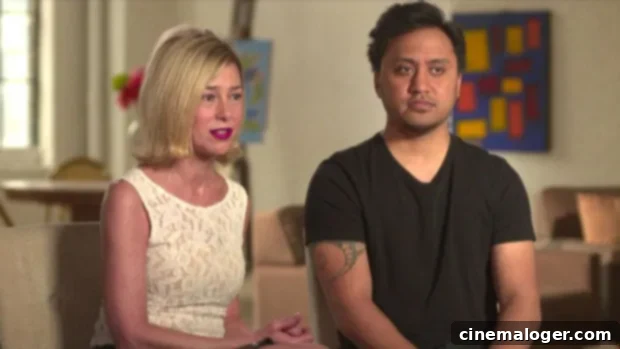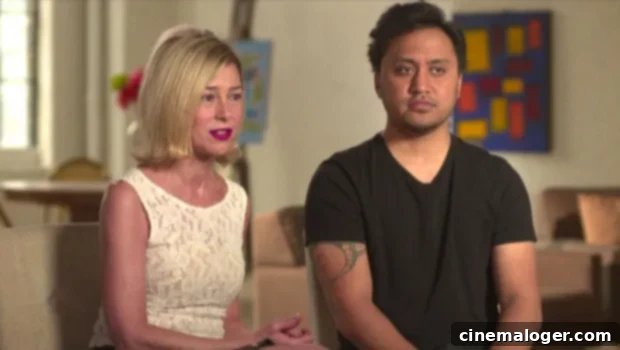Mary Kay Letourneau’s Life and Legacy: Revisiting the Controversial Teacher-Student Relationship, Conviction, and Unexpected Marriage
The name Mary Kay Letourneau resonated deeply within American society, becoming synonymous with one of the most polarizing and extensively covered scandals of the late 20th century. A former elementary school teacher from Washington state, Letourneau catapulted into national headlines in 1997 following her conviction for child rape. The case involved her then-12-year-old sixth-grade student, Vili Fualaau. Years later, her subsequent marriage to Fualaau after her release from prison further cemented her controversial status in the public consciousness, challenging societal norms and legal boundaries.
Mary Kay Letourneau passed away on July 7, 2020, at the age of 58, after a courageous battle with stage four colon cancer. Her attorney, David H. Gehrke, confirmed her death to TMZ, marking the somber end of a life defined by extraordinary circumstances and relentless public scrutiny. Despite the immense age difference and the intense media frenzy surrounding their relationship, Mary Kay and Vili Fualaau ultimately married in 2005. This union was formed after having two children together, whose births occurred during the most tumultuous period of their shared story.
Reflecting on her life and complex character, her friend and Seattle-based lawyer, Anne Bremner, shared an exclusive statement with HollywoodLife.com: “Mary was a client, a good friend, a wonderful mother, and a force of nature. She was brilliant and dedicated to her work and family. She overcame seemingly insurmountable odds with panache and humility. She will be dearly missed.” This heartfelt tribute underscores the often-conflicting perception of Letourneau – viewed differently by those who knew her personally versus the broader public who judged her through the unforgiving lens of legal and ethical transgressions.

Even though the couple’s marriage ended in 2017 with a finalized divorce in 2019, Gehrke revealed to TMZ that Vili Fualaau remained a steadfast presence in Mary Kay’s final months. He took on the role of caregiver during the month she spent in hospice care leading up to her death. This revelation offered a poignant glimpse into the enduring, albeit unconventional, connection they shared, one that seemingly transcended the legal and social judgment that had followed them for decades and outlasted their marital vows.
Letourneau’s 1997 arrest and the subsequent scandal with Vili Fualaau stood out as one of the first high-profile national cases in the United States involving a female teacher accused and convicted of having sexual relations with a minor male student. This particular aspect added another layer of complexity to the already shocking narrative, challenging conventional understandings of gender roles and power dynamics in such sensitive abuse cases. The couple later attempted to explain the intricate and often baffling dynamics of their forbidden attraction during a revealing 2015 interview with iconic journalist Barbara Walters, an attempt to humanize a story that had long been sensationalized and condemned. To truly grasp the depth of her story, let’s delve deeper into the defining chapters of Mary Kay Letourneau’s life.
The Genesis of a Scandal: Mary Kay’s Life Before Vili Fualaau
Before the events that would forever alter her life and public image, Mary Kay Letourneau led what appeared to be a conventional life. She was a married mother of four, having wed Steve Letourneau, a fellow student she met during her time at Arizona State University. Together, they built a family, raising four children. However, Mary Kay later recounted in various interviews that her marriage to Steve had been fraught with unhappiness and difficulties, portraying it as a strained relationship. This narrative often served as a backdrop to explain, though never to justify, the circumstances that led to her eventual involvement with Vili Fualaau.
The couple’s legal divorce was finalized in 1999, two years after the scandal broke and while Mary Kay was already serving her prison sentence. Following the divorce, Steve Letourneau was granted full custody of their four children. Remarkably, two of her biological children from her marriage to Steve chose to attend their mother’s controversial wedding to Vili Fualaau in 2005, indicating a complicated family dynamic amidst the intense public turmoil and personal fallout.
Conviction and Legal Battles: The Child Rape Charges and Their Aftermath
The core of Mary Kay Letourneau’s notoriety stemmed directly from her conviction for child rape. At the time their sexual relationship began in the summer of 1996, Vili Fualaau, her former sixth-grade student at Shorewood Elementary School in Burien, Washington, was between 12 and 13 years old. In stark contrast, Mary Kay Letourneau was 34. The illicit relationship ultimately came to light in February 1997 after police received a crucial tip-off. An immediate investigation followed, leading to interviews with Vili Fualaau and, subsequently, Mary Kay’s arrest.
Facing overwhelming evidence and the undeniable gravity of the charges, Mary Kay Letourneau eventually pleaded guilty to two counts of second-degree child rape. This legal admission confirmed the severe nature of her actions and initiated a long and complex legal journey that would captivate and appall the nation. The public reaction was one of widespread shock and outrage, particularly given her position as a trusted educator and the profound age and power imbalance between her and her victim.
Motherhood Behind Bars: The Birth of Audrey and Georgia
The unfolding legal drama surrounding Mary Kay Letourneau took a profoundly poignant turn with her pregnancies. While awaiting sentencing in her high-profile case, she gave birth to her first child with Vili Fualaau, a daughter named Audrey, in May 1997. This event, occurring amidst intense legal proceedings and relentless public fascination, added another layer of complexity and human drama to an already sensational case. She accepted a plea deal in her child rape case in August of that same year, which initially outlined a lighter sentence.

However, her legal situation quickly escalated from a county jail sentence to a lengthier state prison term. As part of her initial plea agreement, Mary Kay received a six-month county jail sentence, with three months suspended. A critical and explicit condition of her release was a strict no-contact order, absolutely prohibiting her from having any communication or interaction with Vili Fualaau or any other minors. This crucial condition was tragically violated in February 1998, just two weeks after her release from jail, when she was found by police in a car with Vili. This blatant breach led to the immediate vacating of her plea deal, and Mary Kay was subsequently sent to state prison to serve the original, more severe sentence of seven and a half years.
It was during her extended incarceration that she gave birth to their second daughter, Georgia, on October 16, 1998. The circumstances of her birth, behind prison walls, further highlighted the extraordinary and tragic nature of her situation, drawing renewed public attention to the case. Throughout Mary Kay’s imprisonment, Vili Fualaau’s mother, Soona Fualaau, stepped in to help raise Audrey and Georgia, providing a semblance of stability for the young children caught in an unprecedented family drama. This period underscored the profound personal consequences of Mary Kay’s actions, not only for herself but for her children and dedicated family members.
The Controversial Marriage: Mary Kay and Vili Fualaau’s Enduring Bond
After completing her full prison term in August 2004, Mary Kay Letourneau and Vili Fualaau embarked on the next highly anticipated and widely criticized chapter of their relationship: marriage. On May 20, 2005, they exchanged vows at a picturesque Washington state winery. The event, attended by their daughters and over 200 guests, was once again a magnet for intense media attention, reigniting public debate, ethical condemnation, and an uncomfortable fascination.
At the time of their wedding, Mary Kay was 43 years old, and Vili Fualaau was 22. Their union was viewed by many as a shocking culmination of a criminal act, a testament to what some perceived as a manipulative influence, while others saw it as a testament to an unusual, yet deeply personal and resilient connection. The couple consistently maintained that their bond was genuine, portraying it as a unique love story that defied societal norms, legal judgments, and public opinion. They often spoke of the immense challenges of attempting to maintain a normal life under constant media scrutiny, and the undeniable difficulties faced by their children, who grew up under the heavy shadow of their parents’ contentious past.
Despite the initial skepticism, the unprecedented nature of its beginning, and the continuous public outcry, their marriage lasted for 12 years. Throughout this period, they occasionally granted interviews, most notably with Barbara Walters, attempting to share their perspective and navigate the complex public narrative that continually defined them. They frequently spoke about their unwavering commitment to each other and their daughters, trying earnestly to carve out a life that, to them, felt authentic and true, even if it was perpetually judged and misunderstood by the outside world.
Separation, Final Years, and a Lingering Legacy
The unconventional marriage of Mary Kay Letourneau and Vili Fualaau eventually came to an end. In 2017, Vili filed for separation, and their divorce was finalized in 2019. While the public speculated extensively on the reasons for their split, the couple offered few explicit details, citing personal differences and the immense, unrelenting pressures they had faced throughout their lives together. Despite the legal divorce, the profound and complicated connection between them evidently persisted, proving to be more resilient than their marital vows.
In her final months, as Mary Kay Letourneau bravely battled stage four colon cancer, Vili Fualaau returned to her side, providing comfort and care during her hospice stay. This act of devotion, even after their legal separation and divorce, underscored the unique and enduring bond that characterized their relationship from its scandalous beginnings to its quiet end. It offered a compelling testament to the personal narrative they had always maintained, regardless of the public perception and condemnation.
Mary Kay Letourneau’s life and the scandal she ignited left an indelible and complex mark on American society. Her case prompted widespread and often uncomfortable discussions about teacher-student relationships, the profound nuances of child abuse, and the complexities of consent and power dynamics within all relationships. It boldly challenged conventional understandings of victimization and perpetrators, especially concerning gender roles, in a way that had rarely been seen before. Her story remains a potent, if unsettling, case study in the annals of legal history and public morality, continuing to provoke intense debate and reflection on the myriad facets of human relationships, justice, and societal judgment.
As her life drew to a close, it was clear that Mary Kay Letourneau remained a figure who evoked strong, often conflicting, reactions. Yet, for her family and close friends, she was remembered as a mother, a friend, and a strong-willed individual who faced her extraordinary circumstances with a unique blend of resilience and, according to some, humility. Her passing closed a chapter that, for many, symbolized an uncomfortable but undeniable part of contemporary American culture, leaving behind a legacy that is as complex and controversial as the life she lived, a narrative that will continue to be dissected and discussed for years to come.
